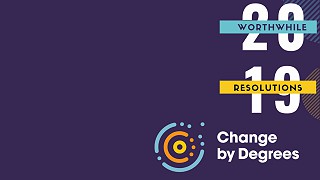2020 Worthwhile Resolutions

People have a Love/Hate relationship with resolutions – making them is easy, keeping them, not so much. It’s no different in business where balancing market edge and margins often requires methodical processes and dynamic innovation. We talked to a collection of future-focused companies in Co. Cork to hear what matters to them, how they define sustainable business and what their hopes are for the next twelve months.
‘What do you mean by sustainable, exactly?’
Sustainability is a complicated concept for most. The overriding consensus from the businesses we talked to is ‘this is just how we are’ – a personal set of values based around wanting to do the right thing. Emily Connell of Chalk and Easel explains it best when she says ‘I didn’t consciously think I’ll be sustainable, it was very much my style and I recognized as I made orders and sourced stock that this was just the way I was going.’
For Gillian, founder of Greenhouse and other stories in Kinsale, being sustainable means having a small footprint and creating harmony. At Oysterhaven Outdoor Centre believes being sustainable means raising awareness amongst their clients, most notably the kids, so that the environment they operate in remains pristine.
At Salinger’s, Sarah sources products that provides real choice. Companies like The Bonnie Mop have a ‘Zero D Denim’ initiative, which means it uses 90% less water than traditional denim production and none of the harmful chemicals. It bridges sustainable fabrics with eco- friendly sustainable dyes meaning it’s so much healthier for the world but also for the children who wear it. Salinger’s also offer a CORKCOLLECT discount code that cancels the shipping fees and allows the customer to collect directly from the shop.
At Dukes Coffee Company they have created a culture that lives and breaths sustainability, heavily driven by its founder Aidan Duke. Everything from procurement to customer engagement is done in a way that protects the environment and treats people fairly. Interestingly, they have a sustainability policy and Aidan actually gives time to staff to learn how to sort waste correctly. They have solar energy at their City Gate store and use greaseproof paper for their GrabnGo lunch options.
Equally, as Shannen of Diva Boutique Bakery & Café explains, it’s about running a business that is viable, profitable and therefore sustainable. It means being able to pay staff fairly, pay the bills on time and make a profit. ‘We want to sustain our existence in the village and we’re conscious that our customers are mostly locals, so providing them with a great service and product is important.’ And Bronwyn of Wild Design would agree. Having worked in the markets she made a pivot to a shop business model so that they could be sustainable themselves, and stay in business. They have a triple bottom line model that plans to engage with people in year one, the environment in year two and profit in year three, all while giving a space to Irish crafters to showcase and sell their goods.
At Idaho, Richard and Mairead put it simply: ‘We want to have the least impact on the planet that we possibly can.’ Right now, Idaho are remarkable in that they have one single general waste bin a week; quite the feat for a busy coffee shop. He describes Mairead as adamant about food waste. They purposely don’t over fill their plates with garnish and operate on the premise that if people want more, all they need do is ask. They also consciously avoid peak load times with ESB and their heating is on a time switch.
And for Ciaran Fitzgerald of the Blue Haven Collection, he made a conscious decision to be more efficient and more aware, making changes to get positive sustainable results for his business.